Ildikó Szilasi alumna: Africa is inescapable!
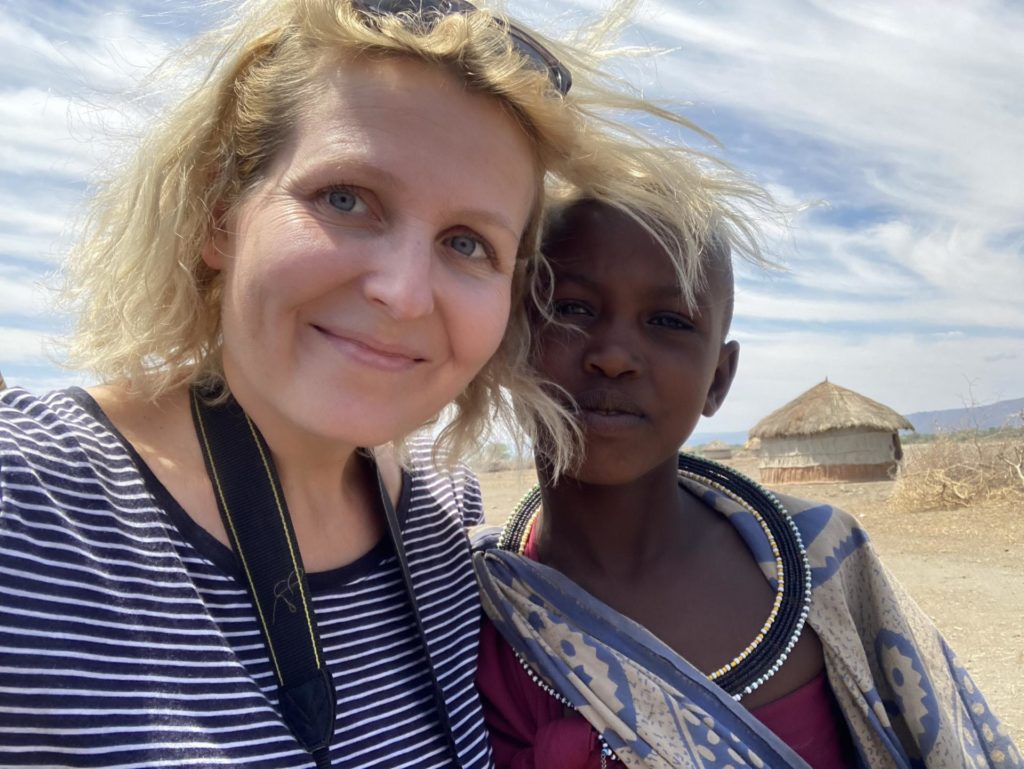
Ildikó Szilasi, an expert on Africa, recently gave a lecture at Corvinus at the invitation of Dr. Melinda Jászberényi, Associate Professor of the Department of Tourism. As her previous statements have shown, she first visited the continent in 2004 as a volunteer for a foundation in the Democratic Republic of Congo, and during her work there she immediately fell in love with Africa. What attracts you so much?
Congo was a difficult place, the dense “visceral existence” I experienced there for the first time somehow gave me an everyday adrenaline rush. The country is one of the poorest in Africa, but I loved it, and we helped to set up orphanages, schools and social health surveys. I was driven by scientific interest and anthropological curiosity. Today, after travelling a lot in Africa and setting up my own travel agency (in 2013), I know that Africa is simply unmissable.
Why?
First, Africa is currently home to 1 billion 431 million people, or 17% of the world’s population. There are fantastic things to see there, and in my presentations on the continent I always say that Sudan has more pyramids than Egypt, and that Ethiopia has the largest number of African UNESCO World Heritage Sites. I am convinced that the continent is becoming an increasingly important geopolitical factor, with a lot of good farmland and important minerals – oil, gas and many others. I think that one of the chances of survival for the generation that is growing up now is to become global citizens, to understand the world, to look for global connections in literature, art, culture – in other words, Africa is inescapable. The continent still has huge tourism potential, but it is not yet sufficiently exploited.
Perhaps because Hungarian people are distrustful, fearful of sanitary conditions, and also because travel to Africa is not cheap.
There are indeed a lot of prejudices in people’s minds, more people from the former colonial countries dare to travel to Africa, but this continent is not yet on the mental map of Hungarian people. I have been going to Africa for twenty years and I have never once had malaria, of course you have to have the right vaccinations before you go, and you also have to protect yourself against mosquitoes on the spot. One of our agency’s mottos is “in Africa by day, in Europe by night”, which means that accommodation and meals are always in tried and tested locations. Of course, travel is not cheap, there are destinations where airfares are really expensive, and a safari – where, for example, tourists can see the ‘big five’ up close, i.e., elephant, leopard, lion, rhino and African buffalo – costs hundreds of dollars. But you’ll be surprised: our traveller base is not only home to big business and wealthy tourists, but also to teachers and pensioners. I’ll never forget how a young girl in Ghana – she had every desire to see an elephant in its natural habitat – opened the door of her cottage one night in the Mole National Park and saw an elephant grazing peacefully just a few metres away. She was very happy.
What does it mean to organise your trips in a sustainable way?
First and foremost, we sleep where the locals can provide good quality accommodation, because we are also providing them with an income. In Senegal, for example, we always stay at Madame Aida’s in St. Louis, as they have a cosy oceanfront hotel. Or in southern Algeria, for example, we stay in Tuareg guesthouses. In the more popular places where tourism is already developed – Zanzibar, Madagascar, for example – you can stay in excellent hotels, even five-star hotels. Sustainable tourism also means that we try to pay attention to the little details: for example, we send out a list of donations to all our passengers in advance if they want to give a gift to the locals. I know that many villages, for example, welcome community skill-building sports games, basketballs, jump ropes. We also collect empty petrol bottles on the trip and give them to the people who live there – it’s amazing how ingeniously they can recycle them.
What language can you use on these organised trips? How do you interact with the people who live there?
Africa is perhaps the only place still worth travelling to in an organised way, especially if you are a first-time visitor. There’s always a Hungarian guide with the group, either my colleagues or myself, but it’s common for people who have graduated from university in Hungary to meet the group and stay with them throughout. English and French are the main languages spoken (it depends on the country’s former colonial status), I myself understand a little of Wolof, and we learned Swahili at ELTE. Anyway, I think it is very important that the trip should not be just sightseeing and safari. I try to give tourists as much as possible a taste of the real Africa: my aim is to meet people from the villages, go to the market and have a look around. It’s important that the people there have a shared experience with the ‘white people’, for example, we recently went through a small village with tourists on a buggy (sand buggy), of course the children immediately surrounded us and were interested. And we played with them, taught them to jump. It shouldn’t just be “there were the white people again, but they left quickly”. The shared experience is very important, and I always say this at Africa Expo Budapest, of which I am also the founding co-organiser. I am convinced that one’s attitude as a traveller matters a lot, if someone approaches the people living there with malice or prejudice, they will understand it. And I also find that after a trip, tourists think differently about Africa, about Africans, than before.
You completed your Master’s degree in Cultural Heritage Management at the UNESCO branch of Corvinus University of Budapest, Kőszeg. How did you benefit from the Corvinus Master’s programme to achieve your goals?
I “sat in” on this training at a relatively old age, but I can say that it was fundamental and decisive. Before that, I had an economics degree from the College of Modern Business Sciences in Tatabánya, and a degree in cultural anthropology from ELTE, but it was at the Corvinus Master’s programme that I realised what I wanted to do with my life. It was there that I found out that I wanted to start a travel agency, thanks to the fertile environment where I studied and to Daniela Jelinčič personally, the tutor. Until then, I simply did not know what to do with my wide-ranging knowledge and how to combine spiritual and cultural heritage with tourism and sustainability. I had already written my thesis on this topic, entitled “Cultural Tourism, Development and Poverty Reduction in Africa”.
Photos by Dorottya Kanti (portrait), Gergely Lantai-Csont (ring-tailed lemurs and Gungu festival),
Éva Glavati (safari with elephant)
Katalin Török
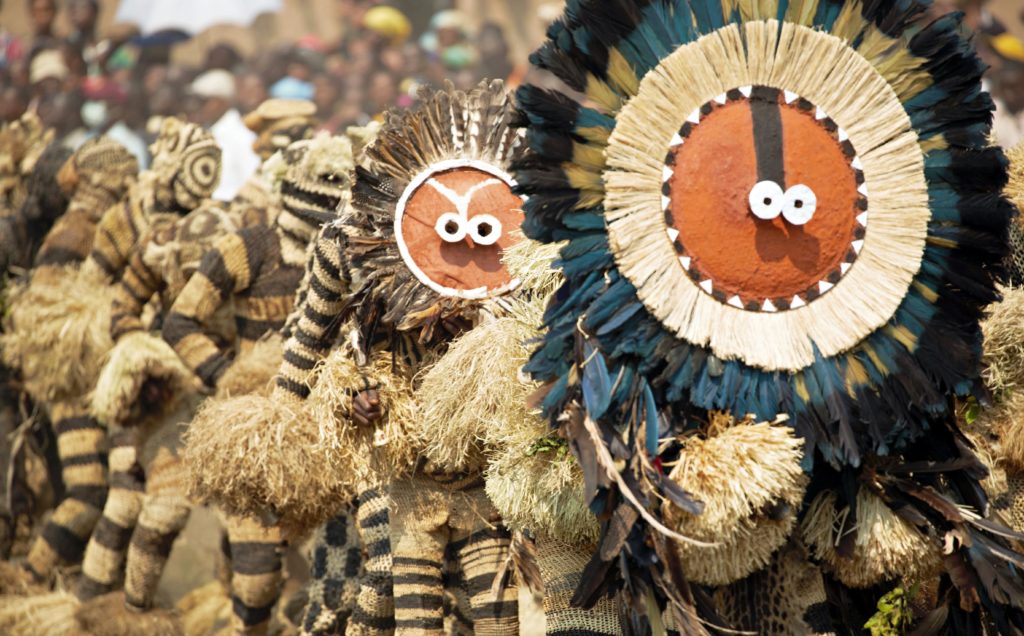
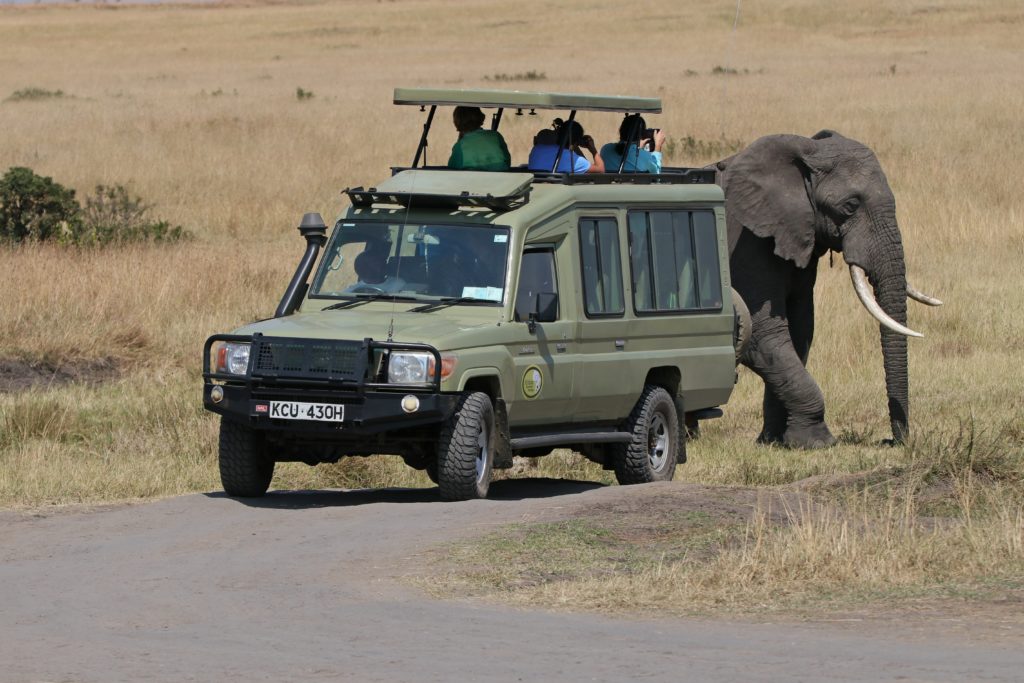
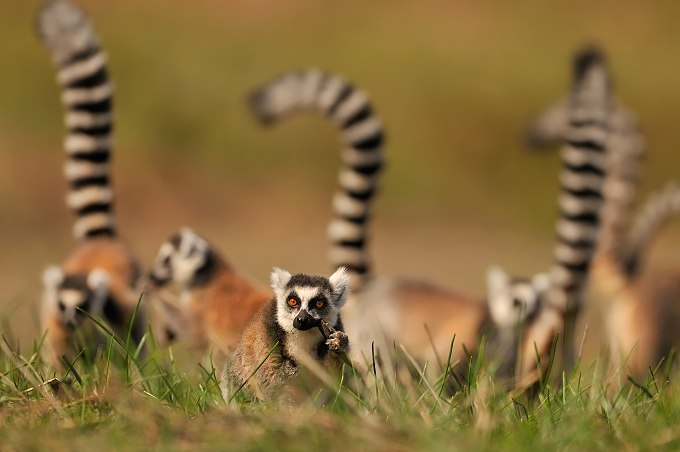
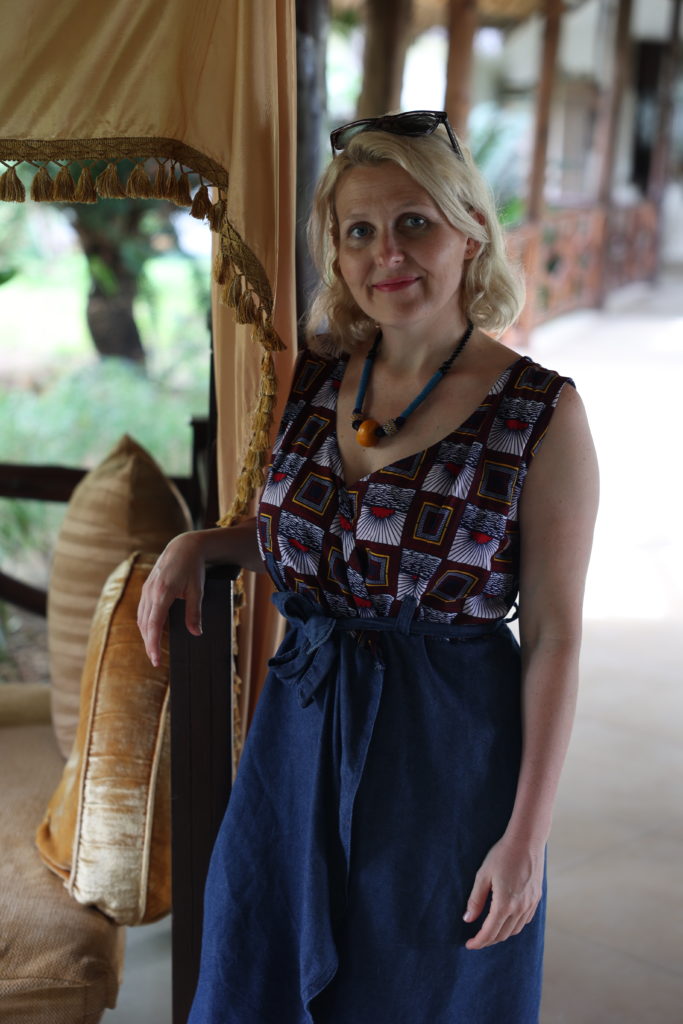
Fotók: Kanti Dorottya (portré), Lantai-Csont Gergely (gyűrűsfarkú makik és Gungu fesztivál),
Glavati Éva (szafari elefánttal)
Török Katalin